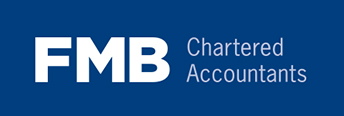With the recent decision to hike up DIRT on deposits and exit tax gross savings and investment policies to 41% from 1 January 2014, more people will seek greater net investment returns. But beware… speculating is not investing and choosing funds and investments based on whatever is flavour of the day or is hotly tipped on the web or is leading the performance tables should set the alarm bells ringing.
Investment is all about you and your personal objectives and financial goals. In order to build and manage a successful investment portfolio it is recommended that you identify where your overall assets are invested and build a portfolio that has the right balance and risk that is right for you.The following five steps are easy to follow:
1. Have Clear Goals
Is the objective of your investment to seek a real return i.e. a net return ahead of inflation? Is it to generate income? Is it a combination? Can you invest part of the money with a longer term time horizon? What will you do for accessible cash?
2. Know Your Investment Risk Tolerance
Risk and return go hand in hand and if you want higher returns you have to take higher risks. There are no shortcuts and if an investment offers more than the risk-free rate (i.e. deposits) then it comes with higher risks in terms of capital loss and the possibility of lower returns than anticipated. Higher risk investments such as equities are generally expected to return more than lower risk-free investments such as cash. However, taking on a high level of risk does not guarantee greater returns or it wouldn’t be risky! There are numerous ways to measure risk but checking the volatility of your investment is a good place to start with (volatility being the extent to which your investment fluctuates in value). Volatility of an investment in isolation is not enough to assess an investment.
3. Focus on a Mix of Assets
Asset allocation is the process of dividing up your capital and allocating it to more or different types of asset classes. An asset class is the term given to a group of investments that share similar risk and return characteristics and includes cash, equities, fixed interest, property, commodities and alternative investment styles. The key is getting the mix aligned with your risk profile.
4. Select High Quality Funds
Investors derive much of their financial knowledge from what they read, hear or see in newspapers, magazines, websites, television and books not to mention the internet. However, just because there is a lot of information does not mean that it is necessarily accurate, objective or relevant to your situation.
The best solution is to take advice from an experienced independent financial adviser who has a predefined process to his/her advice and investment strategy.
5. Monitor and Review
Investment does not finish at the point when you buy your fund or investment. With multi-asset class portfolios that use funds, over time, each asset class will generate different returns, which will cause your portfolio’ asset allocation and consequently its risk profile to change, or rather drift away from its original position. Other facts such as tax implications and if a fund manager moves job or a poor economic outlook can affect the reasons for holding an investment. It is therefore important to periodically reappraise your investments and discuss with your adviser.
Summary
Slow and steady wins the race! The greater the portfolio loss in any given year then the higher the level of future growth required to recover from that loss. Remember a 35% fall in a portfolio requires 54% growth to recover whereas a 5% fall in a portfolio requires only 5.3% growth. Once you are clear of your goals, minimising portfolio volatility should be a key objective and will prove its worth when we experience the next market downturn.
This article is intended to provide a general guide to the subject matter and is necessarily in a condensed form. Advice should be taken before acting on information in it.
Sign up for our quarterly Newsletter and keep up-to-date with FMB news on business, finance and more.







